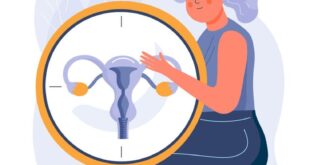
UNDERSTANDING NEUROLOGICAL DISORDERS
Pet dogs are part of our families. When something goes amiss with their health, especially their nervous system, it can be devastatingly scary. Neurological conditions in canines can be both confounding and emotionally exhausting; often affecting brain activity, spinal cord nerves and body functions; which could result in changes to behavior, mobility or bodily functions affecting behavior, mobility or bodily functions.
WHAT ARE NEUROLOGICAL DISORDERS IN DOGS
Neurological disorders occur when a pet’s nervous system becomes damaged or dysfunctional for whatever reason – be it genetic, injury, infection, tumor growth or an autoimmune disease leading to symptoms ranging from minor to severe that require attention from veterinarians and caregivers alike.
Dog’s nervous systems regulate everything from movement and sensation to emotions and mood regulation – when something disrupts this delicate network it can seriously change their lifestyle and disrupt their way of living.
COMMON SIGNS
Although our pets cannot articulate when something is bothering them or making them unhappy directly, their behaviors often give away any signs they need care or attention. Pay special attention for any of these indicators of problems with your pup:
- Sudden seizures or convulsions; sudden loss of coordination or balance
- Excessive circle or pace walking
- Head pressuring (pushing head against walls)
- Paralysis in one or more limbs
- Loss of bladder or bowel control: An issue
- Problematic or unexplained pain or sensitivity
- Changes in behavior such as confusion and aggression
Top Neurological Disorders
Here are the Frequently Diagnosed in Canines
- Epilepsy
Perhaps one of the best-known neurological conditions among dogs, epilepsy is an ongoing condition marked by repeated seizures that may be heritable (idiopathic) or caused by other sources; with proper medication therapy however, many dogs with epilepsy live full and happy lives. - Intervertebral Disc Disease (IVDD)
IVDD occurs when discs between vertebrae bulge or rupture into the spinal cord space, leading to pain, nerve damage or paralysis – particularly common among breeds such as Dachshunds and French Bulldogs. - Vestibular Disease
This condition, often misunderstood as stroke-like in appearance, affects balance and coordination in dogs. They may fall, tilt their heads back or experience rapid eye movements; though often an idiopathic cause remains unknown and gradually improves over time. - Degenerative Myelopathy
A devastating progressive spinal condition afflicting older dogs – typically German Shepherds. The symptoms start out with weakness in hind legs before progressing to complete paralysis over time. While no cure exists yet, physical therapy and supportive care help maintain quality of life for affected pets.
Diagnostic and Therapeutic Options for Neurological Problems Finding solutions to neurological disorders may not always be straightforward, so when possible your vet may suggest:
Bloodwork, X–rays or MRIs, neurological exams, spinal taps and genetic testing will typically help identify the source. Once identified, treatments might include medication, surgery, physical therapy or diet change to address its cause; managing symptoms often greatly enhances their lives.
Neurological conditions don’t have to mean the end of independence for your dog; many thrive with proper treatments and care, from ramps for mobility assistance, special diets or physical therapy sessions – ensuring they still enjoy life to its fullest.
FINAL THOUGHTS
Final Thoughts: Loving Strength, and Support
Caring for a dog diagnosed with neurological conditions is certainly challenging; yet also one of the most rewarding acts of love that one can perform. Thanks to advancements in veterinary medicine, more dogs than ever before are living longer, happier lives despite their diagnosis.
Remind yourself: you aren’t going through this alone – there is an expanding community of pet parents that understand what you’re experiencing and are willing to share their journeys with you.
So keep the faith, because your pup won’t give up without you joining him in his fight.



